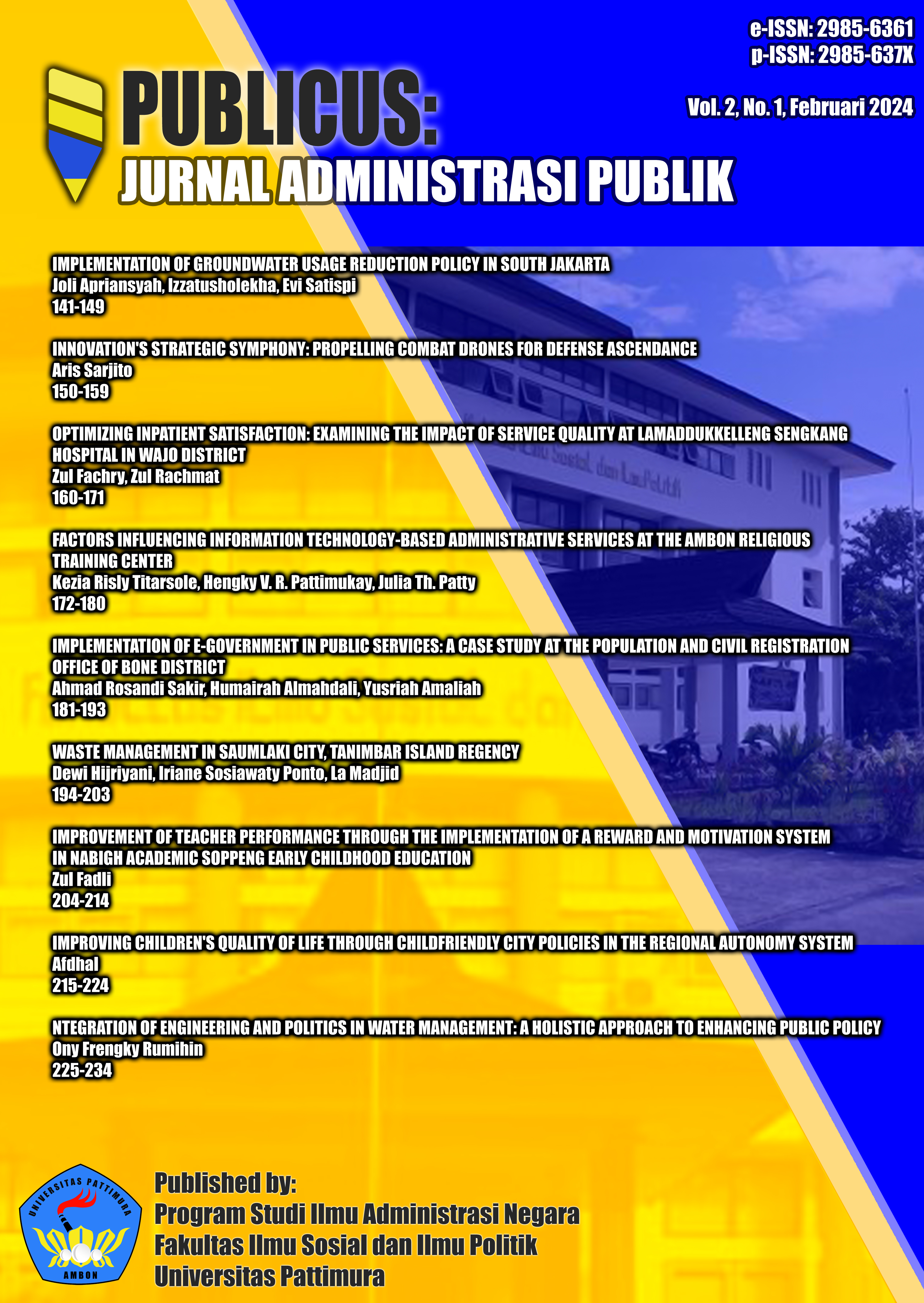WASTE MANAGEMENT IN SAUMLAKI CITY, TANIMBAR ISLANDS REGENCY
Abstract
This research focuses on the practices of waste collection and disposal. Utilizing a qualitative methodology approach, the study employs interviews, observations, documentation, and literature reviews as data collection techniques in a "natural" environment. The data analysis process involves steps such as simultaneous data collection, data reduction, data visualization, and drawing conclusions/verification. The study's findings highlight that despite Saumlaki City having effective waste management, the community's awareness of cleanliness remains low. Waste managers face challenges in adhering to schedules and overseeing the entire process, from collection to disposal. The existing infrastructure is deemed inadequate, especially concerning facilities and infrastructure for the collection, transportation, and disposal of waste at the final disposal site, resulting in the inefficiency of waste management. By combining these findings with previous research results, conclusions can be drawn regarding the complexity of challenges faced in improving waste management in Saumlaki City, with specific recommendations to enhance public awareness and improve waste management infrastructure.
Downloads
Copyright (c) 2024 Dewi Hijriyani, Iriane Sosiawaty Ponto, La Madjid

This work is licensed under a Creative Commons Attribution 4.0 International License.





.png)




